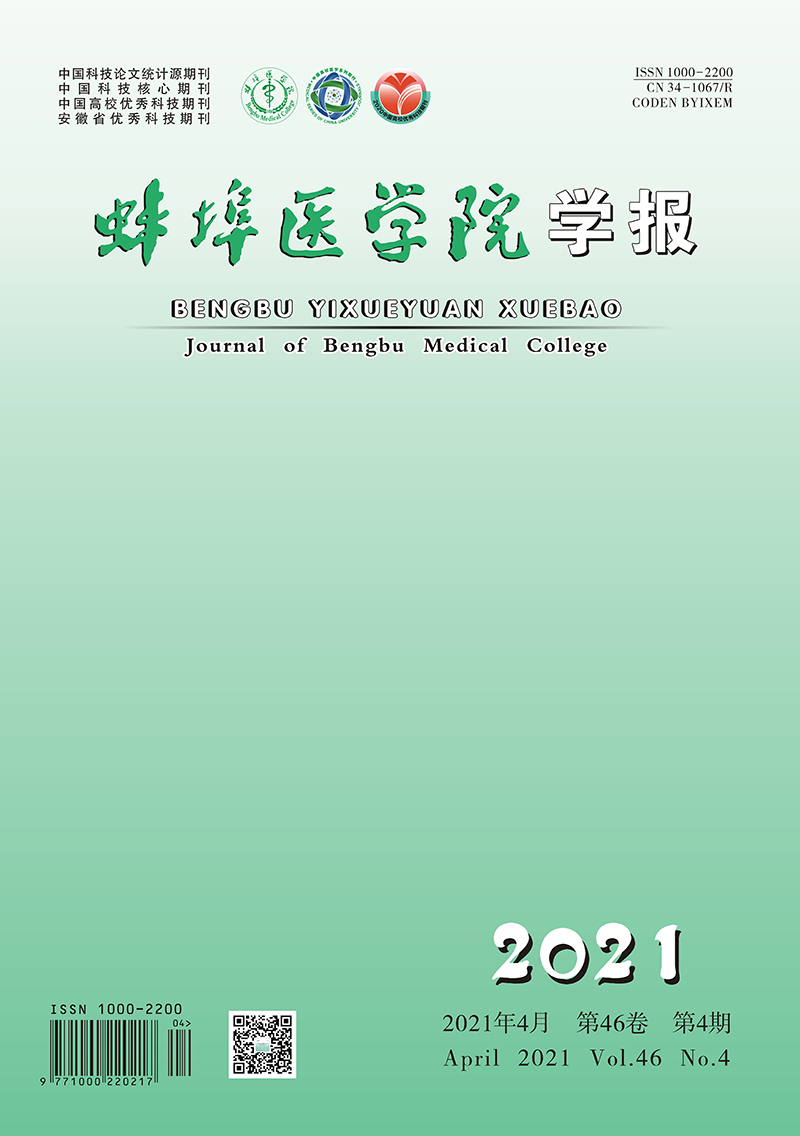-
现代化监护及抢救设备的持续完善和重症医学的不断发展,使得危重症病人的抢救成功率越来越高,ICU转出率也随之增长,而病人转至普通病房后,仍要对血压、电解质、心功能等进行观察,日常生活也需他人提供帮助[1-2]。作为ICU转出病人的主要照顾者,其准备度过低,不仅会增加病人的住院时间及费用、病情恶化的风险,也会加重自身与病人的身心压力,产生焦虑、烦躁等不良情绪[3]。主要照顾者准备度越高,病人生理及心理需求越能得到满足,躯体和神经功能恢复也相对主要照顾者准备度低的病人更快[4]。陈婧等[5]的研究表明,对ICU转出病人家属进行认知行为干预,可显著降低家属的迁移应急水平及负担,从而使家属尽快适应普通病房内的照料工作。但目前关于ICU转出病人主要照顾者准备度的影响因素还没有明确定论。因此,本研究对影响ICU转出病人主要照顾者准备度的相关因素进行分析,为促进ICU转出病人健康的提供理论依据。
HTML
-
选择2018年6月至2019年11月120例ICU转出病人主要照顾者作为研究对象。(1)纳入标准:经本院伦理委员会审核批准,病人及主要照顾者均签署知情同意书;均符合ICU转出指征[6],即血流动学稳定、已渡过疾病急性发作期、无需机械通气及不需要其他特殊生理监测仪器等;日常生活能力评定量表(ADL)[7]≤60分;主要照顾者≥18岁、照顾病人总时间≥6 h/d或照顾病人的时间最长,且仅有一个照顾对象。(2)排除标准:主要照顾者存在躯体功能障碍,生活不能完全自理或与病人为雇佣关系;ICU转出病人近3个月内入住ICU次数≥2次;主要照顾者认知、交流障碍;提前出院、转院等未能完成研究调查者。
-
采用照顾者准备度量表(CPS)对120例ICU转出病人主要照顾者进行评分,包括生理需求、情感需求、服务计划、照顾压力、双方满意的照顾、应对和处理紧急情况、获取信息资源和帮助、整体照顾8个条目,每个条目0~4分,得分越高,照顾者准备度越高。根据得分将ICU转出病人主要照顾者分为CPS≤16分组、CPS>16分组,比较2组性别、年龄、文化程度、家庭收入、照顾经验、对病人疾病知识的了解度、与病人的关系。病人的健康状况:(1)ADL, 包括进食、修饰、穿衣、行走、如厕、洗澡、控制大便、控制小便、转移、上下楼梯10项,每项10分。总分0~20分,机体功能极严重或严重缺陷,生活完全依赖他人;总分21~40分,机体功能中度缺陷,生活大部分依赖他人;总分41~60分,生活部分依赖他人;总分>60分,生活基本自理。(2)简化Fugl-Meyer运动功能评分, 包括上肢和下肢运动17个条目,50项评分,每项2分,得分越高,运动功能越好。(3)简易精神状态量表(MMSE), 包括定向力10分,记忆力3分,注意力及计算力5分,回忆力3分,语言能力9分。总分27~30分表示精神状态和认知功能良好,21~>27分为轻度痴呆,伴认知行为偏差;10~20分为中度痴呆,存在认知功能障碍;≤9分为重度痴呆,认知功能损害严重。
-
采用χ2检验、t检验和logistic回归分析。
1.1. 研究对象
1.2. 方法
1.3. 统计学方法
-
120例ICU转出病人主要照顾者中,CPS≤16分55例,>16分65例。2组性别、家庭收入、照顾经验、与病人的关系差异均无统计学意义(P>0.05);CPS≤16分组的年龄显著高于CPS>16分组(P<0.01),文化程度、对病人疾病知识的了解度显著低于CPS>16分组(P<0.05和P<0.01)(见表 1)。
项目 CPS≤16分组
(n=55)CPS>16分组
(n=65)χ2 P 性别 男
女24(43.64)
31(56.36)28(43.08)
37(56.92)0.01 >0.05 年龄/岁 18~40
>4019(34.55)
36(65.45)40(61.54)
25(38.46)8.69 <0.01 文化程度 高中以下 17(30.91) 9(13.85) 高中到大专 26(47.27) 30(46.15) 7.12 <0.05 本科及以上 12(21.82) 26(40.00) 家庭收入/千元 < 5 18(32.73) 14(21.54) 5~10 32(58.18) 41(63.08) 2.46 >0.05 >10 5(9.09) 10(15.38) 照顾经验 有
无16(29.09)
39(70.91)30(46.15)
35(53.85)3.67 >0.05 对病人疾病知识的了解度 完全了解 16(29.09) 40(61.54) 部分了解 29(52.73) 22(33.85) 14.28 <0.01 不了解 10(18.18) 3(4.62) 与病人的关系 父母 7(12.73) 8(12.31) 0.48 >0.05 配偶 29(52.73) 32(49.23) 子女 15(27.27) 18(27.69) 其他 4(7.27) 7(10.77) -
CPS≤16分组病人的ADL、简化Fugl-Meyer运动功能评分、MMSE均显著低于CPS>16分组(P<0.01)(见表 2)。
分组 n ADL 简化Fugl-Meyer运动功能评分 MMSE CPS≤16分组 55 45.77±6.36 57.89±8.43 20.31±3.58 CPS>16分组 65 49.25±7.84 62.55±9.67 23.56±4.32 t — 2.64 2.79 4.44 P — <0.01 <0.01 <0.01 -
经多因素logistic回归分析,主要照顾者年龄、文化程度、对病人疾病知识的了解度及病人ADL、简化Fugl-Meyer运动功能评分、MMSE均是ICU转出病人主要照顾者准备度的危险因素(P<0.05~P<0.01);主要照顾者照顾经验与ICU转出病人主要照顾者准备度无相关性(P>0.05)(见表 3)。
因素 B SE Waldχ2 P OR 95%CI 主要照顾者年龄 1.32 0.646 4.36 <0.05 3.726 1.906~5.778 主要照顾者文化程度 1.59 0.721 5.84 <0.05 4.849 1.112~7.219 主要照顾者照顾经验 1.01 0.835 2.42 >0.05 1.153 0.947~2.123 主要照顾者对病人疾病知识的了解度 1.70 0.722 6.78 <0.01 5.467 1.235~9.265 病人ADL 1.53 0.689 5.57 <0.05 4.624 1.123~6.062 病人简化Fugl-Meyer运动功能评分 1.74 0.802 6.84 <0.01 5.728 1.307~12.354 病人MMSE 1.15 1.002 5.01 <0.05 4.543 1.004~6.596
2.1. 120例病人主要照顾者的CPS评分和基本资料分析
2.2. 2组病人的健康状况比较
2.3. ICU转出病人主要照顾者准备度的多因素logistic回归分析
-
近年研究[8]显示,ICU病人转入普通病房后更易发生呼吸系统及相关并发症,因此连续、规范的后续治疗和护理对预防病人病情突然恶化、降低其他疾病的发生尤为重要。除了医务人员要严格有效地完成诊疗任务外,照顾者有充分长期的准备来迎接照顾ICU转出病人的挑战,为病人提供正确的护理、情感支持、细心观察,也是促进病人早日康复或基础疾病得到长期控制的关键因素[9-10]。本文结果显示,CPS≤16分组的年龄显著高于CPS>16分组,这是因为病人从ICU转到普通病房后,主要照顾者需要付出更多的精力来照顾病人,难免会发生心理情绪及精神行为的变化,若主要照顾者的年龄过大,对照顾病人的准备度也会下降,甚至产生抵触、懈怠情绪[11]。CPS>16分组的文化程度、照顾经验、对病人疾病知识的了解度均显著高于CPS≤16分组,提示可根据病人的具体病情、照顾者的理解能力,向照顾者补充相关疾病的知识,并展示优秀案例,从而提高照顾者的准备度,改善照料质量。
但也有不同的研究[12]认为,ICU转出病人病情易反复,康复过程和护理内容复杂,即使是专业的护理人员,也需经过长期的培训及临床经验才能熟练掌握相关知识及护理技巧,要照顾者在短时间内完成角色转变、加深对病人疾病知识的了解度,还具有相当的难度。病人的健康状况直接决定了其在日常生活中依赖他人的程度,如长期卧病在床或重度痴呆病人,洗脸、梳头乃至大小便都需要照顾者的帮助,这就在导致病人不能正确表达自我需求的同时,增加了照顾者的负担,降低了其准备度[13-14]。因此,CPS>16分组的ADL、简化Fugl-Meyer运动功能评分及MMSE均显著高于CPS≤16分组。唐青峰等[15]指出,经常照顾病人的家属,会产生比病人更为严重的心理问题,尤其是在得不到缓解的情况下,还会出现过激行为。故而,医务人员应将ICU转出病人与照顾者看作一个整体,在不影响正常诊疗工作的基础上,利用各类信息资源、干预手段提高照顾者的认知与心理弹性,从而使照顾者拥有良好且稳定的准备度[16]。
综上所述,影响ICU转出病人主要照顾者准备度的危险因素是主要照顾者年龄、文化程度、病人疾病知识的了解度及病人健康状况。临床可通过降低照顾者的压力、加强对ICU转出病人的关注等方面来提高ICU转出病人主要照顾者准备度,达到护理人员与照顾者的共同协作,使照顾者为病人提供双方均满意的照顾。






 DownLoad:
DownLoad: